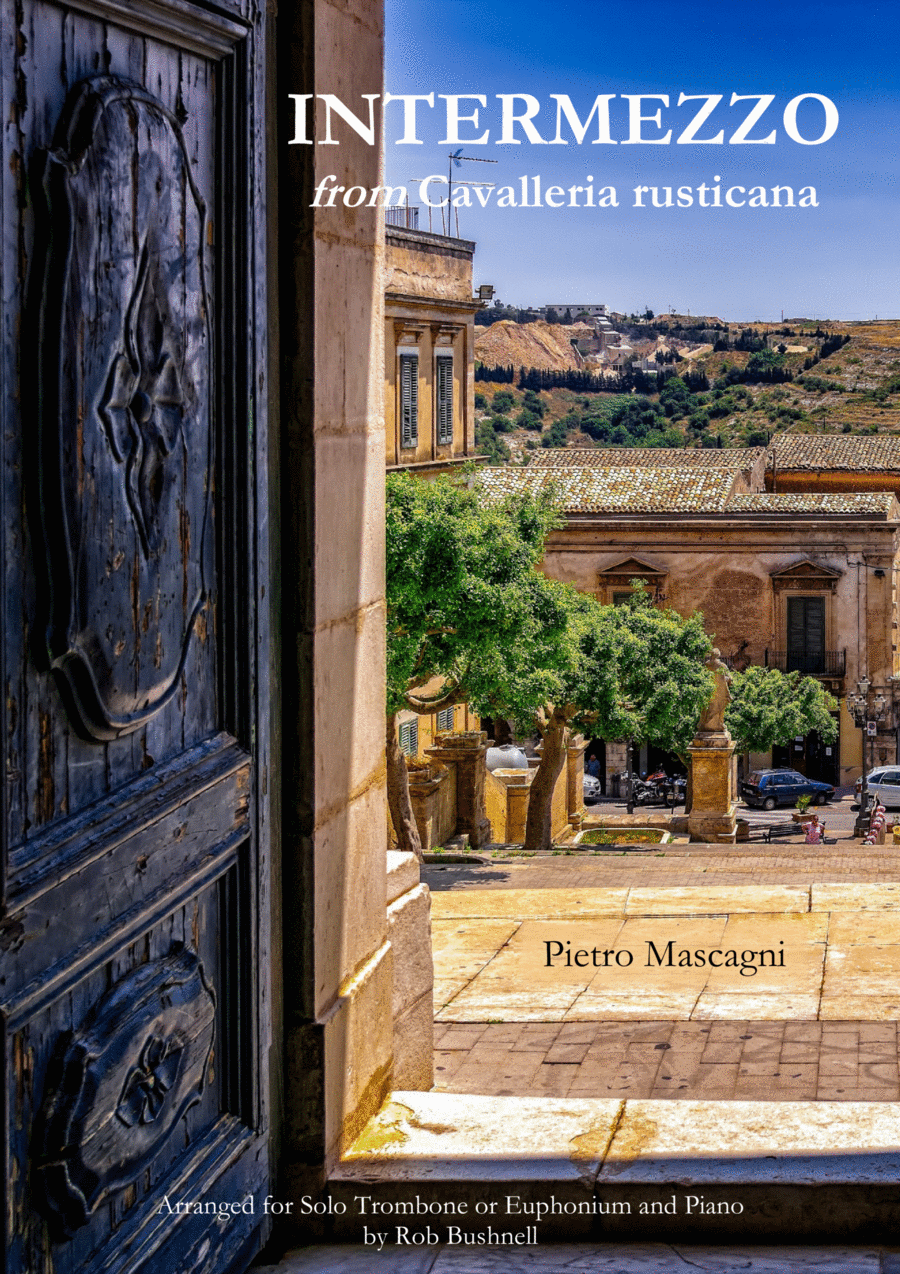B-Flat instrument,B-Flat trombone,Baritone Horn TC/Euphonium,C Instrument,Instrumental Solo,Piano,Tenor Trombone,Trombone/Baritone B.C. - Level 3 - Digital Download SKU: A0.1320503 Composed by Pietro Mascagni. Arranged by Rob Bushnell. Classical,Easter,Film/TV,Opera,Romantic Period. Score and individual part. 9 pages. RBMusic #909019. Published by RBMusic (A0.1320503). In 1889, a struggling composer called Pietro Mascagni heard about a sponsored competition for one-act operas, specifically for young Italian composers who had not yet had an opera performed, only two months before the deadline. With little time, he selected the subject for his opera and asked his childhood friend, Giovanni Targioni-Tozzetti (who was helped by Guido Menasci), to write a libretto for him. Mascagni selected a story that he had seen as a play in Milan in early 1884 by realist writer Giovanni Verga, âRustic Chivalryâ, or Cavalleria rusticana. A passionate love tragedy featuring seduction, adultery, revenge and murder, it is surprising set on Easter morning.Mascagni received only a few verses at a time from his librettists, but he was not worried because he had the opera clear in his mind: âI identified with the drama to such an extent that I felt it within myself in terms of music.â After two monthsâ of work, the music for Cavalleria rusticana was finished but he feared the opera would fail and put the music in a draw. Fortunately, his wife sent it off, he unanimously won the competition and was soon the talk of Europe. (At the premiere in May 1890 in Rome, Mascagni received no fewer than 60 curtain calls.) Unfortunately, it was a one-hit wonder with Mascagni unable to repeat its success, saying towards the end of his life that âit is a pity I wrote Cavalleria first for I was crowned before I became king.â He died, penniless, in 1945.Today, few people have heard of Mascagniâs name, and, if they have, it is rarely in relation to anything but one piece from Cavalleria rusticana, the Intermezzo. A short piece of purely orchestral music that is uses to denote the passage of time, the orchestration is very simple but it is such an indulgently beautiful melody (based on a hymn heard earlier in the short opera) that perfectly captures the peace of country living in Sicily against the intense feelings of the main characters and the looming tragedy to come.The piece is so popular that (along with the âEaster Hymnâ from the same opera), it is the only reason Mascagni features in the Classic FMâs Hall of Fame.The piece was used in the 1980 film Raging Bull and the 1990 film The Godfather Part III.This arrangement (for solo trombone or euphonium and piano accompaniment) includes an alternative part for trombone/euphonium in treble clef. A recording of the original song can be found on YouTube: https://www.youtube.com/watch?v=Kgr-I1y1_2M.Other searchable terms: Italy, Martin Scorsese, Robert De Niro, Joe Pesci, Cathy Moriarty, Nicholas Colasanto, Theresa Saldana, Frank Vincent, Al Pacino, Diane Keaton, Talia Shire, Andy GarcÃa, Eli Wallach, Joe Mantegna, Bridget Fonda, George Hamilton, Sofia Coppola.
